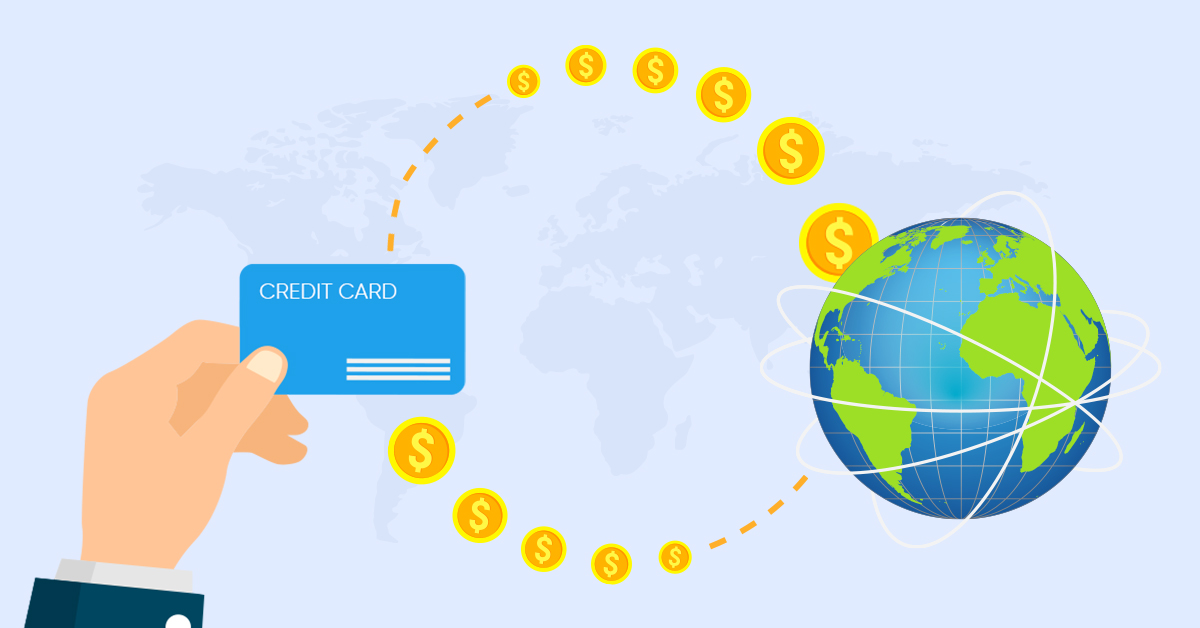If you are someone who travels overseas or who makes international transactions frequently, you might be considering credit cards as one of the most suitable modes of payment for international transactions. However, some people are afraid to use their credit cards to make purchases in a different currency due to the fees charged by credit cards on such transactions. Credit cards indeed charge a fee called the ‘foreign currency markup fee’ on international transactions, but it is also very accurate that credit cards make these transactions very easy and fast. If you are confused about whether you should use your credit card for international transactions or not, you must go through all the information provided below in the article and make a decision thereafter:

What is a Foreign Currency Markup Fee?
The foreign currency markup fee, also known as the Forex markup fee, is the fee charged by credit cards when you use them to make international transactions or transactions in a different currency. This fee can be different on different credit cards, ranging from 0.99% to 3.5%. This fee can be charged in the following cases:
- When you make a retail transaction in a different country.
- When you make an online transaction (in India or outside India) in a foreign currency.
- When you withdraw cash from international ATMs.
- When you purchase something from a shop in India, the POS machine is linked to an international account accepting payments in a different currency.
How Does the Forex Markup Fee Work?
When you make a purchase/transaction in a different currency, your card issuer charges a forex markup fee, which is generally a percentage of the total transaction amount. In India, most Forex cards charge a foreign currency markup fee of around 3.5% of the transaction amount. Suppose you make a transaction in US dollars. Then, your card will first convert the total amount into Indian rupees, and then 3.5% of the amount will be charged as the fee. For example, you purchase something worth USD 150. Now, this amount will be first converted into Indian Rupees, which will be equivalent to Rs. 11,100, assuming that USD 1 = Re. 74. If your card charges a forex markup fee of 3.5%, then it will be Rs. 388.5, and hence, you will have to pay a total of Rs. 11,488.5 for this transaction.
Some credit cards even come with a zero foreign currency transaction fee and can be considered the most suitable cards for international transactions. If you are someone who has to make international transactions very often, you must look for some credit cards with low forex markup fees.
Other Charges That Are Applicable on International Transactions
Currency Conversion Fee
Other than the foreign currency markup fee that the card network also charges, the card issuer charges a currency conversion fee. It is generally 1% of the transaction amount for cards having Visa or MasterCard networks. Sometimes, it is included in the forex markup fee, and the card issuer passes it on to the card network, but in general, it is charged separately. So, if you have a card with a forex markup fee of 3.5% and a currency conversion fee of 1%, then you will be charged a total fee of 4.5% for international transactions.
GST
GST (Goods & Services Tax) is also charged along with all the fees and charges on a credit card. So, with a forex markup fee of 3.5%, 18% GST (18% of the fees and not of the total amount) will also be applicable to your foreign transactions. Therefore, the total charges on international transactions would be 3.5% (forex markup fee) + 1% (currency conversion fee) + 18% of the total fee.
Interest Rates
Whenever you make any transaction using your credit card, interest starts accruing on it after the grace period. The same would be true for international transactions. If you don’t make payment by the due date, an interest rate will be accrued, and you might find it very expensive to make an international transaction with your credit card. But, if you make payments on time, you can avoid this interest. However, you don’t get an interest-free period or grace period for cash withdrawal using your credit card.
Bottom Line
The facility to make transactions in foreign currency is provided by credit card issuers in order to make it convenient for their customers to make international transactions easily. But, as a credit cardholder, it is important for you to be aware of all the fees & charges that are applicable on such transactions so that you don’t get surprised when you see your credit card bill to be much more than your expectations. If you make foreign currency transactions very often, you should find a credit card with zero/low forex markup fees, as the other cards can be really expensive for you in such cases. So, do research and find out some of the best cards for international transactions and go with them. Moreover, if you are still left with any queries, make sure to ask us in the comment section below!









